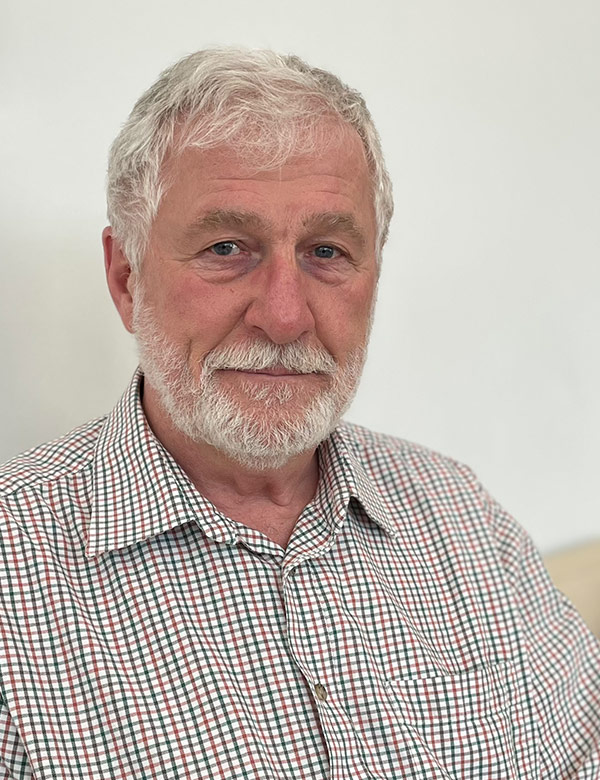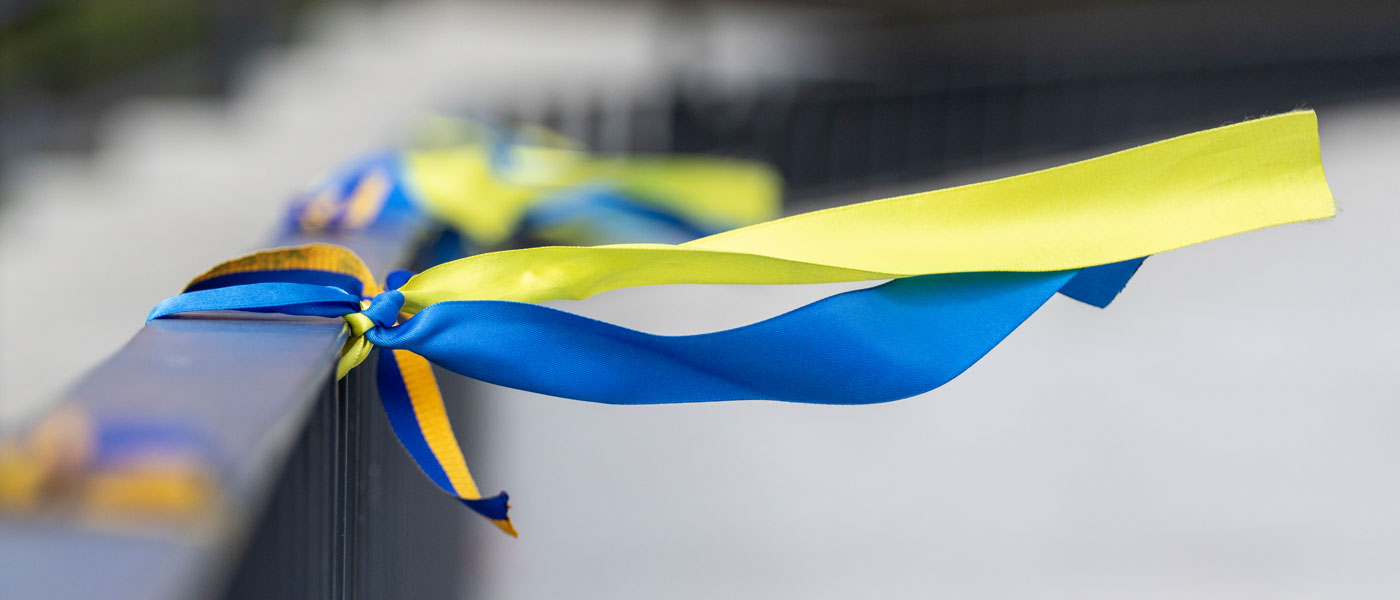As the war in Ukraine continues to devastate communities, a Case Western Reserve University lecturer is partnering with the Peace Corps to help students there learn how to manage the intense emotions of the conflict.
J. Richard Romaniuk, lecturer at the Jack, Joseph and Morton Mandel School of Applied Social Sciences at Case Western Reserve, is partnering with the Peace Corps Response to teach an online empathy and resilience curriculum to students at Lesya Ukrainka Volyn National University in Ukraine.
Drawing on his extensive background in medical research and social work practice, Romaniuk said he hopes to guide Ukrainian students through his course covering emotional regulation, problem-solving, mindfulness and social support.
“The aim is to empower these students with the skills needed to navigate adversity, challenges and stress during these tumultuous times,” he said. “My involvement in this initiative is rooted in a desire to contribute my expertise in neuroscience and social work to help students understand and navigate the impact of trauma.”

The curriculum is part of Lesya Ukrainka Volyn National University’s Virtual Service Pilot Participant effort. Because the conflict prevents Peace Corps volunteers from attending in person, Romaniuk works remotely with Peace Corps volunteers and other international university instructors to co-facilitate the initiative.
Romaniuk previously supported veterans from the Vietnam and Iraq wars as a social worker at the Louis Stokes Cleveland VA Medical Center, an experience that has helped him become even more sensitive to the unique circumstances that people in conflict zones face.
The initiative began earlier this semester, marking the beginning of a “transformative journey” for about 30 Ukrainian students. Romaniuk uses guidelines from the National Institutes of Health about building resilience and managing stress.
The lessons suggest trying new routines and changing perspectives, among other approaches. For example, Romaniuk said he encourages students to refocus and shift their feelings of anger and stress to positivity and opportunity.
“These students have never known anything about living through a war,” he said. “These students can control their own narrative. This is a war for their freedom. Thinking about it that way can actually be helpful.”
Although Romaniuk speaks three languages, he communicates in English—at the students’ preference.
“They don’t want me speaking any Russian,” he said. “They made sure to tell me that.”
For more information, contact Colin McEwen at colin.mcewen@case.edu.
This article was originally published Dec. 12, 2023.

